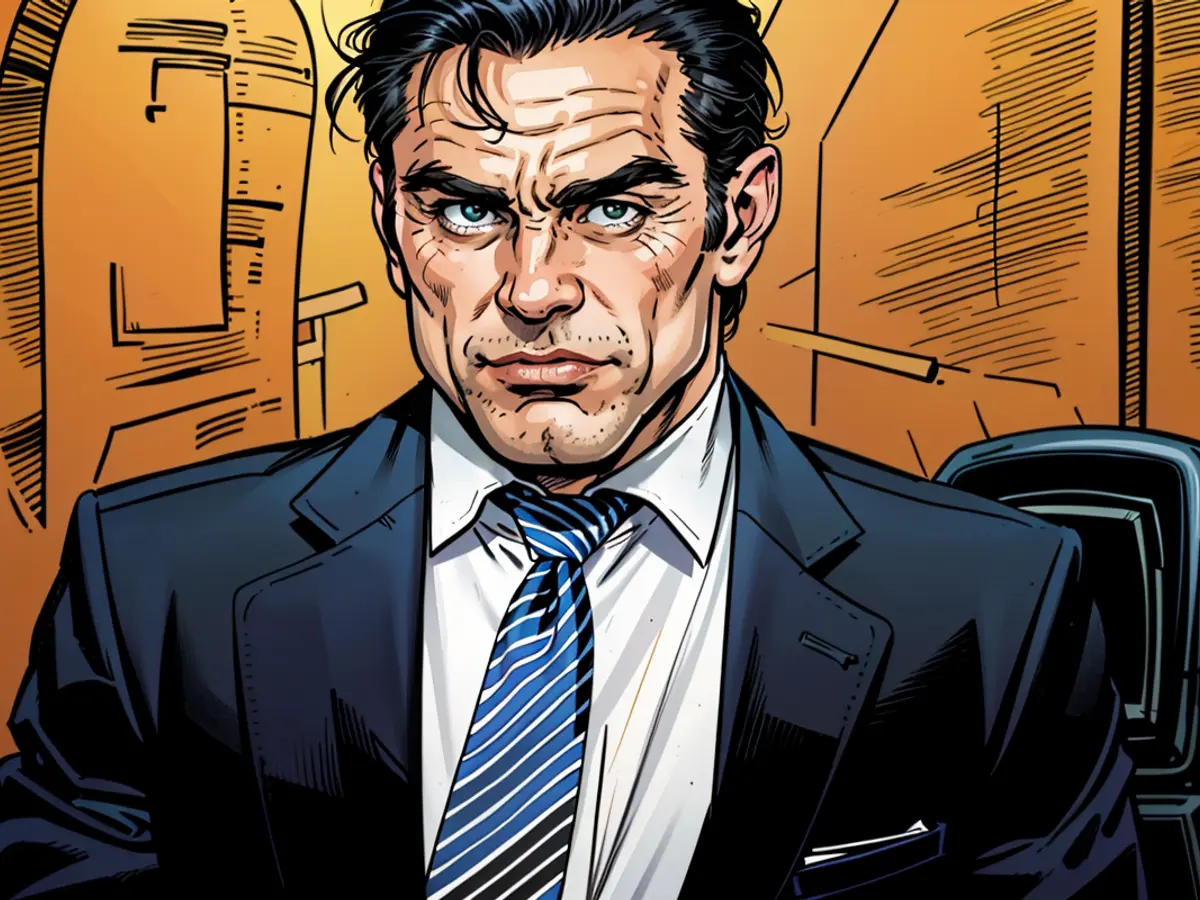Processes - Wirecard Process: Apologies and Criticism towards the Crown Witness
With apologies and attacks against the key witness, the third defendant in the Wirecard trial broke his silence on the 138th hearing day. The former head of accounting, E., began his two-day statement by admitting making mistakes, which he regretted and wished to apologize for. However, he also assumed responsibility and blamed the key witness for the prosecution, Oliver Bellenhaus, accusing him of hate, envy, and lying.
Bellenhaus, who admitted most of the charges and whose testimony implicated the other two defendants, was described by E. as "good at lying and cheating." E. attributed his "eagerness to incriminate" his co-defendant to the fact that he had envied his title and salary. He also found Bellenhaus' inquiries about evidence annoying - perhaps because Bellenhaus had to falsify them.
Not Responsible or No Time
However, E. painted a completely different picture of himself. He claimed he had not personally enriched himself and had always wanted the best for the company. Furthermore, he could not be held responsible for many things or had not had the time for them. The former head of accounting also emphasized that he was not really a bookkeeper himself.
"I had many topics on my plate and felt like a juggler, keeping all the balls in the air so none would fall down," E. described his work. He admitted he hadn't had the time to deal with each ball in detail. However, he now realized he should have stopped and done so.
No Ability to Question Everything
Overall, E. painted a picture of poor personnel, flawed processes, and overwhelming workloads. "It was always the case that two people wanted something from me at the same time," he described his typical workday. During the annual financial statements, there had been a lot of time pressure. "We didn't have the time or the ability to question everything. That's the job of the specialized department," E. said, relying on their information. Often, their responses were simply passed on to the auditors. "If they were satisfied, we were too."
Little to Say About the Third-Party Transaction, which played a central role in the collapse of Wirecard, E. initially had little to say. He cautioned expectations at the beginning of his statement. This was not the focus of his work, and he had only heard many rumors about it. He could only tell stories of "years of desk work" at Wirecard.
No Confession
"We haven't heard a confession yet," summarized Presiding Judge Laurent Lafleur at the end of the 138th hearing day. And the trend did not seem to be going in that direction. The prosecution appeared "a little disappointed" with the statements. The defense of the also accused former Wirecard CEO Markus Braun, however, was satisfied. E.'s statement supported their client's testimony. It was clear that two defendants were telling the truth and one was not, referring to Braun and E. versus Bellenhaus.
The payment service provider Wirecard went into insolvency in June 2020, as 1.9 billion Euro recorded on trust accounts could no longer be found. The indictment accuses the three defendants, as well as the fugitive former sales director Jan Marsalek and other accomplices, of having fabricated billions in sales to keep the actually deficit Dax company afloat. In the trial that has been ongoing since December 2022, E. had been silent so far. Braun denies all allegations, the regular Bellenhaus appears as a crown witness, and accuses the two co-defendants.
- During the negotiation day of the Wirecard trial in Munich, Germany, the third defendant decided to break his silence, addressing the key witness, Oliver Bellenhaus.
- E., the former head of accounting, stated that Bellenhaus' testimony during the trial was filled with hate, envy, and lies, impacting the case significantly.
- As the trial progressed, it was revealed that Bellenhaus, who had admitted most charges and implicated the other defendants, was described by E. as skilled in lying and cheating.
- Following his statement, it became clear in the Process (Court) that the finances of Wirecard were under scrutiny, with accusations of Criminality levied against some individuals.
- Despite the challenges faced in his role at Wirecard, E. pointed out that he had not personally benefited from any wrongdoings, distancing himself from allegations of financial mismanagement.








